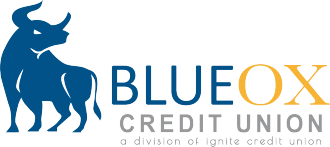home loans 101
Whether you're a first-time home buyer or looking to move to another property, you'll likely need to take out a home loan. Unfortunately, researching and comparing options can start to get overwhelming. Financial jargon tends to make home loans appear more confusing than they are. Not to mention, you'll be spending a significant amount of money. However, homeownership doesn’t have to be complicated! With the help of a financial expert and some basic home loan knowledge - you can be prepared and relaxed throughout the process! Continue reading to learn more:
what is a home loan?
With a home loan, you borrow money to purchase property from a mortgage company or financial institution with the agreement that you’ll pay them back – typically in monthly payments within a specific timeframe.
There are two critical aspects to every home loan - the principal and the interest. The principal cost is the amount that you borrow, and the interest is what you pay the lender in order to borrow the money. However, there are many other factors that you’ll need to be aware of as you go through the process! Let’s break them down:
- pre-qualification – Before you start house hunting, you'll need to figure out how much you can afford to borrow. Your lender determines this amount by doing a pre-qualification based on your income, savings, investments, and other assets. You then can provide this information to your mortgage experts, and they’ll find homes that fit within your price range and desires.
- pre-approval – Getting preapproved for a mortgage helps your lenders verify your financial status. This is helpful when you're ready to make an offer because the seller will feel confident that you can successfully get the funding for the purchase. The pre-approval process involves providing financial documents such as your W-2 and bank statements.
- the term – This is the number of years you will be making your home loan payments. A shorter term means you’ll pay more money each month, but you’ll also pay less interest over time, while a longer term would mean you'd pay less each month but pay more in interest over the life of the loan.
- down payment – The down payment is the amount you pay upfront for your home. They usually range from 3%-20% of the selling price. The more money you put down, the less you will have to borrow! Your down payment can also factor into a lower rate resulting in a smaller monthly payment.
- closing costs – Your mortgage lender will be extremely helpful during the home-buying process! Fees for their service are paid through closing costs, and typically they'll be around 2-3% of your loan total. They can be paid up-front, or your lender will add them to the borrowing amount on some occasions.
First-time homebuyer? Check out our blog about the five things every first-time home buyer should know!
interest rates
Interest rates are used to calculate your monthly mortgage payment. The higher the interest rate on your loan, the higher your monthly payment will be.
pro tip - Your interest rate may change before your home loan application process is complete. To ensure that your rate won’t rise during this period, you can ask your lender for a lock on the rate you were quoted. Rate locks are typically 30-60 days.
what is the best loan option?
The best loan option depends on your specific needs – everyone's needs are different, and a home loan is not a one size fits all!
- Conventional – You can get either a fixed or adjustable rate with this loan. Keep in mind that there is a wide variety of conventional loans available - so work closely with your lenders to determine which one will best fit your needs.
- FHA – Federal Housing Administration Loans is an excellent choice for first-time homebuyers. They offer lower down payments and more flexible credit requirements than a conventional loan. They also allow gift funds – which means friends and family can contribute to the down payment. Saving buyers money right from the start!
- VA – Thank you for your service! If you're active in the military or a veteran, you have earned all the benefits of a VA Loan. You don’t have to obtain mortgage insurance or make a down payment with these loans. You're also offered lower fixed rates and more flexible credit/income requirements.
- Jumbo – Go big and go home with a Jumbo Loan! These allow you to purchase expensive property that exceeds the Conventional Loan limits. You can also take advantage of low interest rates and no mortgage insurance requirements.
- Construction – Looking to build your dream home instead of buying it? These loans typically only require you to complete one close because they automatically convert to a Conventional Loan once you’ve finished building, and you only pay interest on the loan during the construction process.
looking for more?
A mortgage can be an overwhelming and lengthy process. Looking for more information on how Home Loans work and what to expect? Read our blog about the 10 Steps to Buying a New Home!
« Return to "BlueOx Blog"

.jpg)